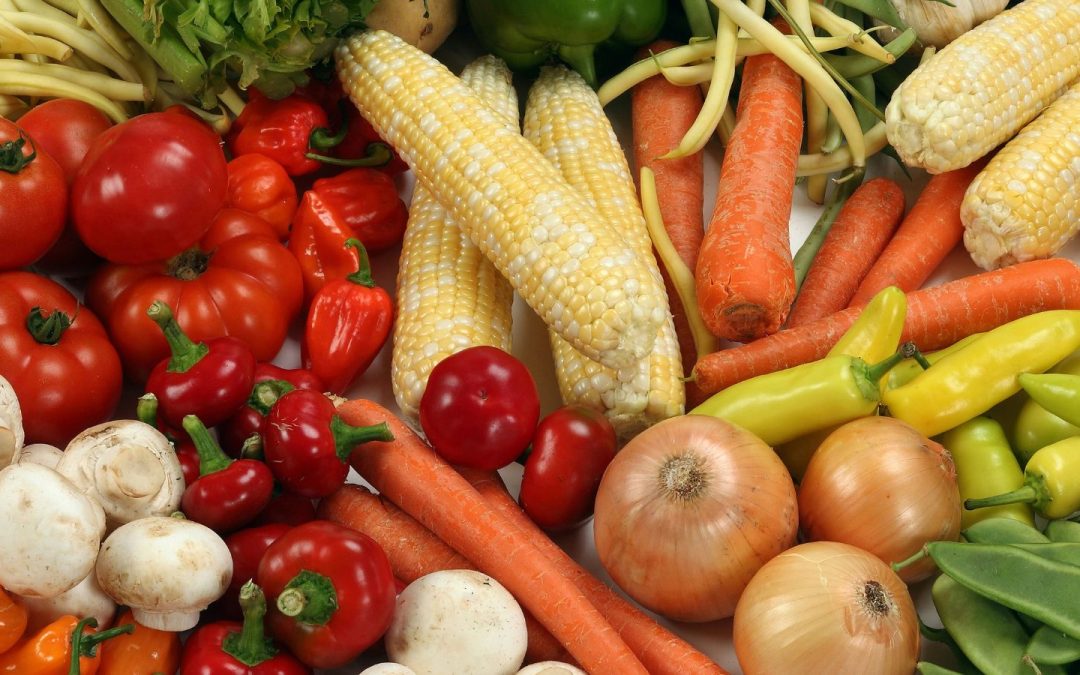Government has published its new ‘Good Food Cycle’, a policy paper aimed at driving a “generational change” in the nation’s relationship with food.
The Good Food Cycle identifies 10 priority outcomes needed to build a thriving food sector while tackling challenges from rising obesity rates to climate change impacts on production, representing a “pivotal milestone” in the Government’s work to develop a comprehensive food strategy.
Government highlighted its key outcomes to create a good food cycle, which included:
- An improved food environment that supports healthier and more environmentally sustainable food sales
- Access for all to safe, affordable, healthy, convenient and appealing food options
- Conditions for the food sector to thrive and grow sustainably, including investment in innovation and productivity, and fairer, more transparent supply chains.
Government said that building stronger, more resilient food supply chains would protect Britain from potential disruptions and strengthen the nation’s security. It also highlighted that making sure everyone can afford healthy food was a driver in its health mission, which aims to help people stay well and reduce pressure on the NHS.
Minister for Food Security Daniel Zeichner, said: “Food security is national security – we need a resilient food system that can weather any storm while ensuring families across the country can access affordable, healthy food.
“The Good Food Cycle represents a major milestone. We are actively defining the outcomes we want from our food system to deliver a whole system change that will help the amazing businesses that feed our nation to grow and thrive, which means more jobs and stronger local economies, while making it easier for families to eat and feel better.
“This isn’t just about what’s on our plates today, it’s about building a stronger food system for generations to come, supporting economic growth, health and opportunity as part of our Plan for Change.”
Minister for Health Ashley Dalton commented: “We want to make sure all families have the option of healthy, high-quality food – not least because it helps tackle the epidemic of obesity, which costs our NHS over £11 billion a year.
“The Good Food Cycle will be good for the health of our communities and help us curb the rising tide of cost and demand on the NHS.
“This builds on measures in our new 10 Year Health Plan to make the healthy choice the easy choice, including launching a world-first partnership with food manufacturers and retailers.”
Industry welcomes the Good Food Cycle framework
Professor Susan Jebb, chair of the Food Standards Agency, said: “We welcome the ambitions set out in the Good Food Cycle today and support the outcomes it describes.
“We continue to work closely with other departments in the delivery of the strategy, playing our part to make it easier for consumers to access food that is healthier and more sustainable.”
Sarah Bradbury, CEO at IGD, said: ”As co-secretariat of the FSAB, we partnered with the Defra team earlier this year to host multi-stakeholder workshops, engaging over 150 organisations across the agri-food supply chain. Their insights have directly shaped the Good Food Cycle’s ambition to build a food system that works for everyone. A powerful example of what can be achieved through collaboration.”
“We’re pleased to see Government acknowledge the importance of our industry to achieving a resilient, sustainable and healthy food system for the UK.”
Andrew Opie, director of food and sustainability at the BRC, said: “Retailers welcome the ambition and direction of the framework. They know customers want more British food, sustainably produced and with clear healthy choices; something we believe this approach can help to deliver.”
Dalton Philips, CEO of Greencore plc, commented: ”The Good Food Cycle is a bold and timely step toward a healthier, fairer and more sustainable food system. It sets the right direction for industry, Government and communities to work together to drive lasting change. ”
Balwinder Dhoot, director of sustainability and growth, The Food and Drink Federation (FDF), said: “From the everyday staples found in kitchen cupboards, fridges and freezers, like oats, yogurts, tins of beans and frozen vegetables, to ready meals, confectionary and new healthier snacks, UK food and drink manufacturers help the nation have a balanced and varied diet, amid busy lifestyles.
“We welcome this strategy’s holistic view that considers all of the factors affecting our sector – from creating the right conditions to drive investment in new healthier products, through to removing barriers to trade and ensuring we have the skilled workers we need. We’re pleased to see Government acknowledge the importance of our industry to achieving a resilient, sustainable and healthy food system for the UK and look forward to working together to develop this ambitious Food Strategy.”
“The food strategy is vitally important as it interlinks with a number of other crucial challenges being faced by the country, including national security and education policy.”
Rupert Ashby, chief executive of the British Frozen Food Federation, said: “We welcome the launch of the Government’s food strategy, and it is encouraging that it focuses on promoting British produce as well as placing an emphasis on creating a healthier, more sustainable, and more secure food system.
“The food strategy is vitally important as it interlinks with a number of other crucial challenges being faced by the country, including national security and education policy. From ensuring resilience in times of supply chain disruption, to delivering nutritious, cost-effective meals in schools, food policy must be viewed as central to the UK’s long-term economic and social wellbeing.
“Frozen food has a key role to play in tackling these challenges, and the BFFF is poised to work closely with government and our members to provide insight and practical examples on the ground. We believe frozen offers scalable, low-waste, and locally sourced solutions that not only improve resilience, but also help meet the UK’s net zero and educational performance goals.”
Simon Roberts, Sainsbury’s chief executive, said: “Britain’s food system should be a powerhouse of economic growth, innovation and job creation, but in the face of ongoing and significant challenges, we need to work with bold ambition, commitment and focus to secure its’ future.
“The Government’s Good Food Cycle is a positive step towards building a more resilient food system and that ensures food in the UK is consistently healthier, more sustainable and more accessible to all for generations to come.
“The real work starts now. To unlock growth, and build a UK food system that works for everyone, we will need to work with pace, passion and focus across Government and industry to seize this opportunity.”









